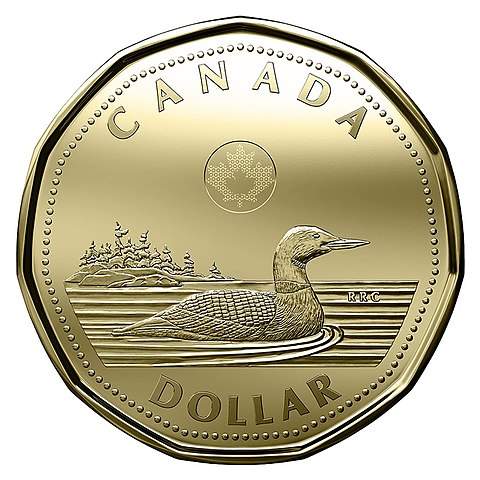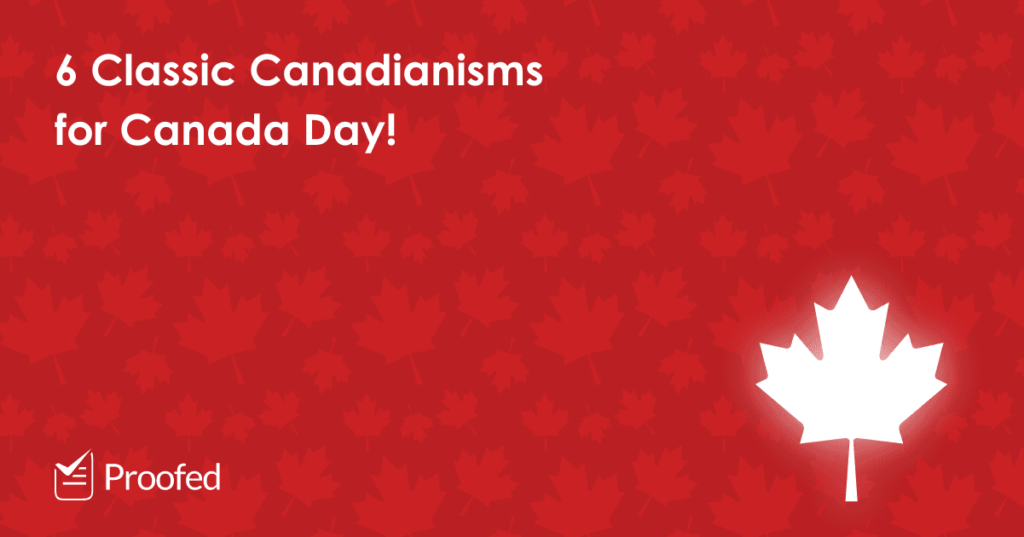Celebrated on the 1st of July every year, Canada Day is the anniversary of when Canada became a single unified country. And to mark the occasion, we’re looking at six classic Canadianisms (i.e. words and phrases that are distinctively Canadian). How many of these have you used in your writing?
1. Loonie (One-Dollar Coin)
The Canadian one-dollar coin is nicknamed the ‘loonie’ because one side has a picture of a bird known as a ‘loon’ on it. The other side features Queen Elizabeth II, though, so make sure not to mix them up!
I’ve only got a loonie left to spend!
A ‘toonie’ (or sometimes ‘twoonie’), meanwhile, is a two-dollar coin.

2. Keener (Overly Enthusiastic)
In Canada, a ‘keener’ is someone who is extremely keen and enthusiastic to learn, especially a student (i.e. the opposite of a slacker):
My class is full of keeners, and they make the rest of us look bad!
This slang term isn’t usually a compliment, though! Instead, it implies that the ‘keen’ individual is a show-off or teacher’s pet.
3. Molson Muscle (Beer Belly)
A pot belly or beer belly is called a ‘Molson muscle’ in Canada. This is because Molson is a popular Canadian brand of beer:
He came back from his holiday with a Molson muscle.
And wouldn’t you rather have a ‘Molson muscle’ than a beer belly?

4. Hooped (Beyond Repair)
Most people use ‘hooped’ to mean ‘decorated or encircled with hoops’. But in western Canada, if something is ‘hooped’, it is broken or beyond repair:
Find this useful?
Subscribe to our newsletter and get writing tips from our editors straight to your inbox.
I think my car is hooped: black smoke is pouring out the exhaust pipe.
Keep that in mind if you ever need to buy a stripy jumper in Canada!
5. Tuque (A Knitted Hat)
In Canadian English, a ‘tuque’ (also spelled ‘toque’ or ‘touque’) is a knitted hat. Elsewhere in the world, we’re more likely to call this hat a ‘beanie’:
You won’t want to forget your tuque if you visit Canada in the winter!
This Canadianism comes from the French word toque, which you may also encounter in the term toque blanche (i.e. the tall white hat that chefs wear).
6. All-Dressed (All Toppings)
Finally, if you want all the optional toppings and garnishes on a hamburger or hot dog, in Canada, you ask for it to be ‘all-dressed’. The equivalent in American English is ‘the works’ or ‘everything’:
I’d like my hot dog all-dressed, please.
‘All-dressed’ is a popular Canadian potato chip flavour, too. All-dressed chips combine barbecue, ketchup, sour cream and onion, and salt and vinegar. So if you’ve ever wondered what Canada tastes like…
What are your favourite Canadianisms? Will you use any of these in your writing? If you do, our editors can help make sure your Canadian English is always error free. Just let us know how we can help!



